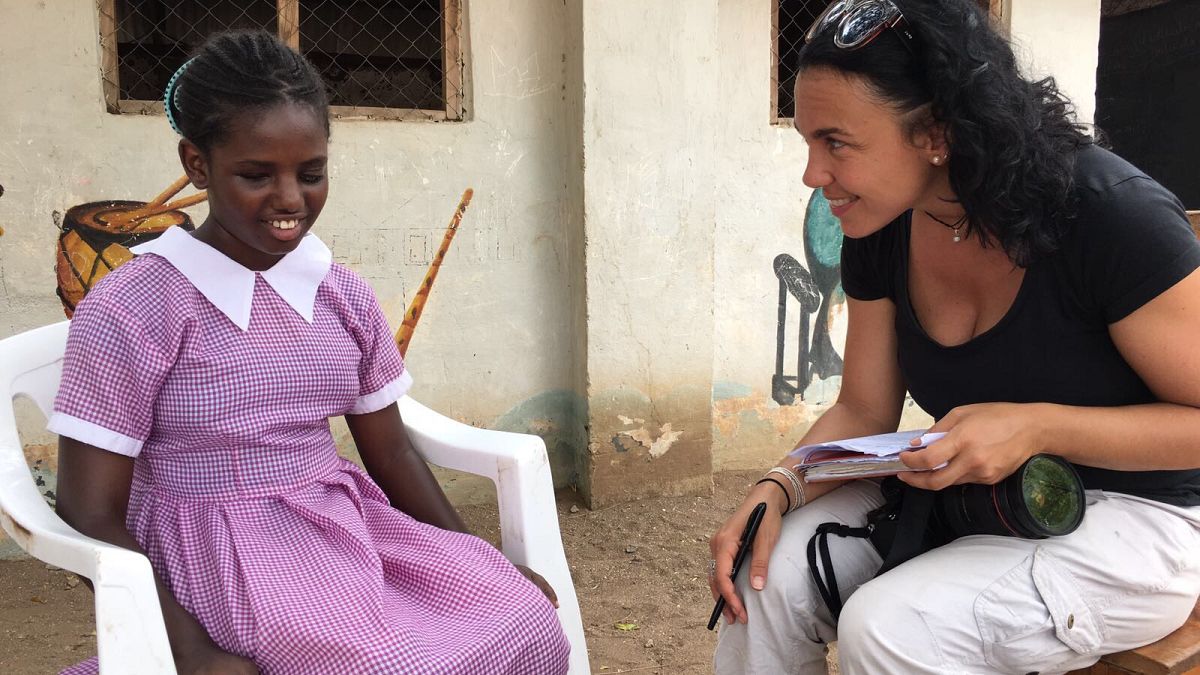By Monica Pinna
I’ve worked in the field for around 12 years. I don’t know how many times I have gone around the world. It’s the dream of every journalist, to travel, meet people and tell their stories.
Reality always differs a bit from the dream. Early flights, long queues at the security and once on site the rush to get everything done. Over and over again. I produce magazines, this requires creating sequences in a movie kind of style, or better, it’s like short documentaries.
What I do is between being a director and a reporter. I have two days to finalise my story, find the characters who will share their experience, find and give key information which is never exhaustive, as my pieces are usually five minutes long, or better, ‘short’.
The long check list of “to-dos” is already demanding in a normal environment, and becomes very tricky when filming in conflict areas or with victims of any kind of abuse. Production requirements and tight schedules push you to translate what you see in television language and fast. “Your interviewee cries. Let’s get a close up on the eyes. You interviewee rubs the hands on the lapse, let’s get a close up on the hands”. While that is happening, you are concentrated on how to film that same action conveying an emotion better.
By translating actions, landscapes and people into camera language, you end up putting a filter between you and reality. More than once I wondered if I could still feel emotions in front of a suffering human being, other than thinking if the frame was right.
I understood that the key was identification. The more I could identify with the person I interviewed, the more I empathised. The cameraman and I couldn’t hold our tears when a Syrian mother in an Iraqi refugee camp told us that the family house built with the savings of ten years, was bombed eight days after having moved in.
Nevertheless the really tight schedules often push you to rush interviews creating a distance with the person in front of the camera. I was getting more and more worried about becoming a cold production machine not able to feel anything anymore. Then something started happening more and more often.
I’m coordinating the filming. Everything is in place, camera, lights, microphones, when a little detail breaks the invisible shield of concentration. Reality breaks in and it’s disruptive. It’s the refugee father in the Greek Malakasa refugee who combs his daughter’s hair just seconds before being filmed. It’s the unexpected smile of a victim of Myanmar’s military attacks before a photo was taken. In spite of the pain of being in a hut just in front of a latrine, of having mice where he sleeps, and having lost five members of the family in a week, this person smiled to me. He was just happy to be sharing his story.
Now, after two years in the field producing the humanitarian series Aid Zone, I have realized that each story I have listened to, each person I have reported on, has had an impact on me, adding something to my person. It did happen even if I didn’t realise straight away.
I will never forget Omar, in the Iraqi refugee camp of Dohuk. This smart, talented 10 years old boy was the symbol of the paradox in which refugees live, trapped in a time and space that doen’t belong to them. Trapped in limbo without future and perspectives. Omar, his drive for learning, his dignity in front of the camera in the middle of the camp, made me think that he was a man in the body of a child who had seen too much and too quickly.
His story made me feel human again. I felt again more painfully alive, in spite of the camera.
By Monica Pinna
Follow Monica on Twitter @_MonicaPinna
Photo credit: Thierry Winn
